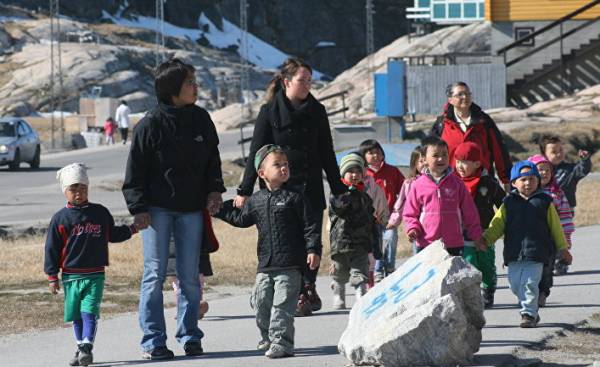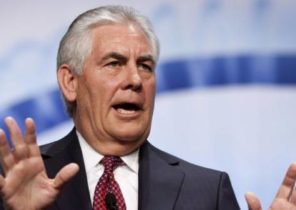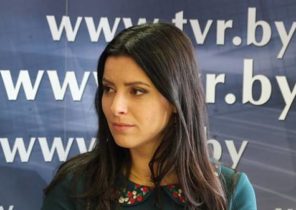
While Britain is discussing when and how she will leave the EU, Greenland can recline the chair and relax. This country this path has already passed and still no regrets about his decision.
A referendum on withdrawal from the European economic community was held on 23 February 1982, and without disruption of the foundations of the continent. And Greenland with their good two million square miles ten times larger than the UK. Here we must recognize two things: first, on this huge territory is home to not more than 60 thousand people, while the United Kingdom has over 60 million inhabitants. Secondly, membership of the Arctic Islands in the organization-the predecessor of the EU from the outset was a mistake.
The Greenlanders were forced to submit to the Danes
On the one hand, because geologically and geographically Greenland belongs more to America than to Europe. On the other hand, due to the fact that, paradoxically, the Greenlanders overwhelmingly voted “against” on the referendum, which actually was possible to classify them to Europeans. It was in 1972, then Greenland has largely been under the control of the Ministry in distant Copenhagen, as the largest island in the world in the nineteenth century, became a Danish colony. Since the majority of the Danes voted to join the EEC, the voice of the Greenlanders did not attach importance. They had to join the community regardless of their faith.
Against this soon sparked a protest in Nuuk, the capital of the island. The fishermen complained that now competitors are from Europe too, can fish in their waters. And freedom-loving Greenlanders, whose main aim was full independence from Denmark, took the accession to the EEC against their will as an intolerable insult. As soon as the Danes gave Greenland a little more independent, this led to a referendum on Grex, who, in 1982, just still no one had called.
53% voted “Yes”. A crucial round of talks on what should be the output, the “soft” or “hard”, was held in Bonn. Entry conditions, which now have to comply with the United Kingdom. Instead, the Greenlandic Prime Minister with the then German foreign Minister Hans-Dietrich Genscher (Hans-Dietrich Genscher) agreed on the most important points: Greenland remains in NATO (an important question in the midst of the cold war) and now provides European fishermen the opportunity to fish in its fishing areas in a certain amount of the total quota.
In turn, supplied to Europe Greenlandic fish is not subject to any duties. Cod, halibut and prawns are the most important exports of the island. Another compromise: although the Greenlanders do not have the right to vote in European elections, legally they are considered EU citizens, as inhabitants of the former French and Dutch colonies such as Aruba, Curacao and New Caledonia.
Millions flow in Greenland
“Perhaps it could pass for Greenland better,” concludes the analyst from the University of Copenhagen Ulrik Pram Gad (Ulrik Pram Gad), implying not only that the aspirations to independence of many of the islanders but also economic consequences. Vel Brussels today translates in addition to license fees for fishing trawlers from the EU of approximately € 28 million per year in Nuuk to support the development of the education system. The amount seems insignificant, but still under the state budget, equivalent to 900 million euros, it’s worth mentioning.
If Greenland remained part of the EU, said Ulrik Pram Gad, because of its relatively high income per capita such assistance could not be considered. Perhaps after leaving the EU the relations between Nowcom and Brussels became even closer, says the scientist, because it is being negotiated now is not from Copenhagen, and can be carried out directly.
But this circumstance does not affect the fact that the so-called block-aid from Denmark in the amount of approximately 440 million euros a year, is the largest source of income to the Greenlandic budget. A small Kingdom can afford such spending to maintain voting rights in the external and defensive policy of the big island. Financial assistance from Denmark — a good reason for the Greenlanders not to abandon the former colonizers.







